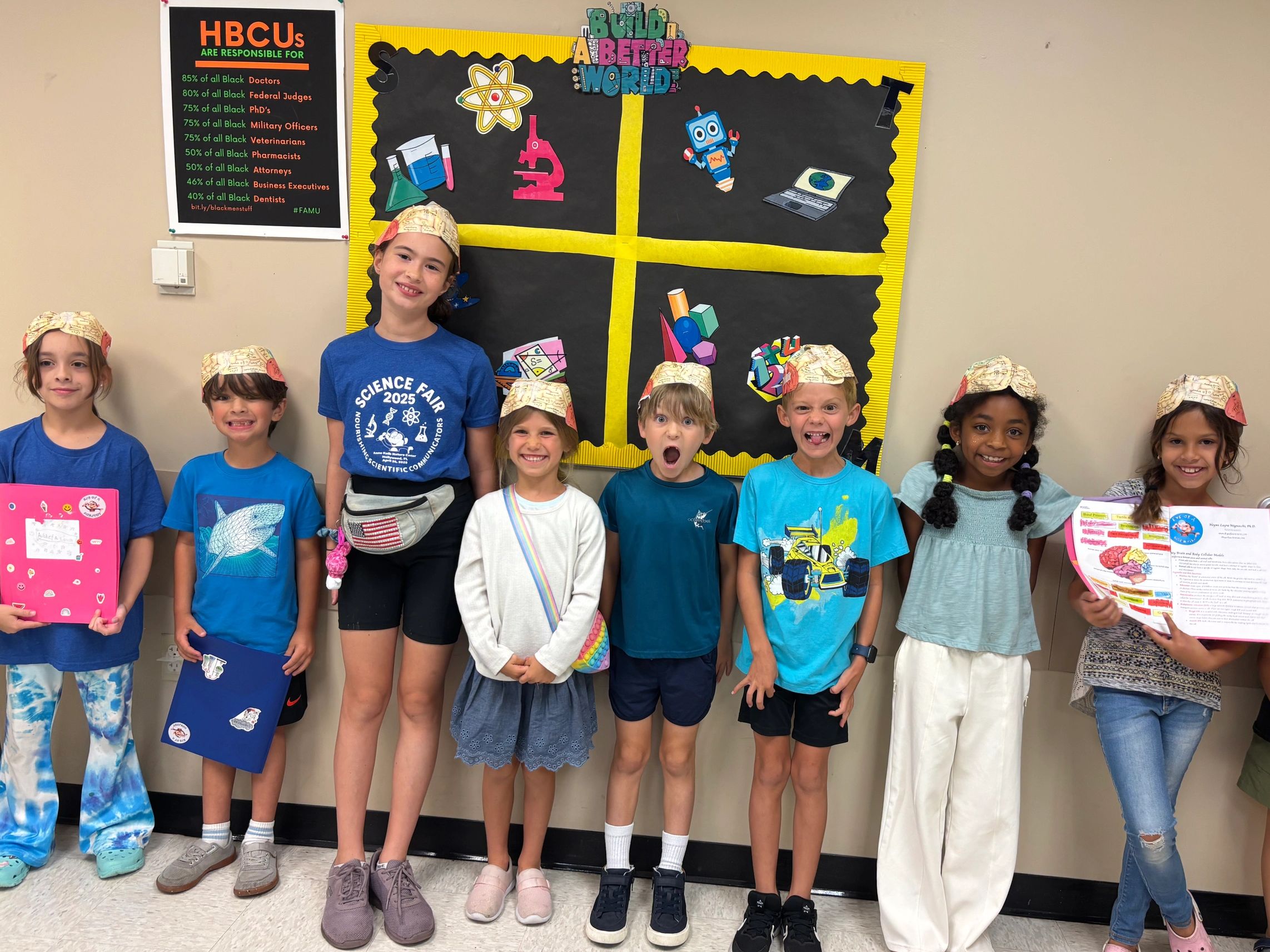
Eye of a Scientist Foundation's
Laboratorium Research Methods Program
Our nonprofit organization is dedicated to improving the science education in South Florida.
Participate in an 8-10 week Scientist Program learning how to perform experiments using the scientific method located at one of our locations:
-Tree Tops Park in Davie, FL
-North Lauderdale Saraniero Library, North Lauderdale, FL
Program Levels
Eye of a Scientist has designed experiments that combine multiple scientific fields: communication, science, technology, engineering, art, and mathematics (CSTEAM). Out program focuses on the application of basic inquiry-based skills required to conduct multi-variable experiments across science disciplines. All experiments are designed to supplement your child's developmental dependent science experience.
Lessons are divided into the following groups:
1. Lower Elementary for 5*-7/8 years old (60-minute experimental lessons)
2. Upper Elementary for 8-11/12 years old (60-minute experimental lessons)
3. Middle School for 11/12-15 years old (60-75 minute experimental lessons)
4. High School for 15-18 years old (60-75 minute experimental lessons)
*ages are fluid and are child-dependent. Please email info@eyeofascientist.org for any questions.
**limited availability of 10-12 students per class.
What to expect:
Lessons throughout the 2025-2026 school year will include a variety of hands-on projects and experiments that follow a structured guideline using the scientific method. across the following topics:
- Fundamentals of Research Methods
- Physics
- Biology
- Chemistry
- Molecular Biology
- Geology
- Astronomy
- Environmental science
- Microbiology
- Neuroscience
Below is a description of the skills we help students develop at every stage in their early academic careers:

PRE-K AND KINDERGARTEN
PRE-KINDERGARTEN AND KINDERGARTEN (3-5 years old)
This program is guided by the alphabet to use in accompaniment to an early learning reading literacy program as a means to include science related activities during this academic developmental period. The Mini-science Program includes a science and neuroscience word for each letter of the alphabet, a book suggestion related to the weekly vocabulary, a fine motor- and gross motor-skill reinforcing hands-on activity. The activities encourage performing explorations of their immediate environment and encourages measuring, games and movement to initiate a child's understanding of the world they live in.


Qualitative Methods
LOWER ELEMENTARY SCHOOL (5-7/8 years old)
1. My scientific skills: the Scientific Method and the use of scientific tools.
2. All about matter: fundamentals of matter
3. Energy sources: classification of types of energies
4. Earth's wonders: features in nature
5. Science of life: living and non-living things
6. My space: identification of astronomical objects
7. My body and brain: body parts and their functions
Join Us Today
At this stage in their development, we focus on the root skills behind their observations, predictions, characterization of information and basic measurements.
Click below to choose a day and location for your future scientist.

Quantitative Methods
UPPER ELEMENTARY SCHOOL (8-11/12 years old)
1. Being a scientist: the scientific method and application of scientific tools
2. All that matters: functions of matter
3. Using energy: application of energy
4. Earth's structure: function of earth's features
5. The Nature of life: function of features shared by living organisms
6. Outer Space: astronomical instruments
7. My body systems: connections between body parts
Join Us Today
At this stage in their development, we focus on the early application of measurement skills across multiple variables in the same experiments. Students learn to visually compare their numerical data as they investigate science topics throughout the school-year.
Click below to choose a day and location for your future scientist.

Mixed Methods
MIDDLE SCHOOL (11/12-15 years old)
1. The scientist in me: application of the scientific method
2. Everything matters: application of matter
3. Forces, motion, & energy: measuring and manipulating forces
4. Earth's features: use of natural features to solve a world problem
5. Living Organisms: microorganism features and function
6. Space technology: calculating and designing astronomical exploration
7. Brain, body, behavior: neuroscience investigations
Join Us Today
At this stage in their development, we focus on collecting numerical data across multiple variables with 2 or more levels. Students learn how to analyze data and create multiple graphs using the same data. At this level we also focus on communication skills, showing students how to write 1-page reports once a semester.
Click below to choose a day and location for your future scientist.
This website uses cookies.
We use cookies to analyze website traffic and optimize your website experience. By accepting our use of cookies, your data will be aggregated with all other user data.